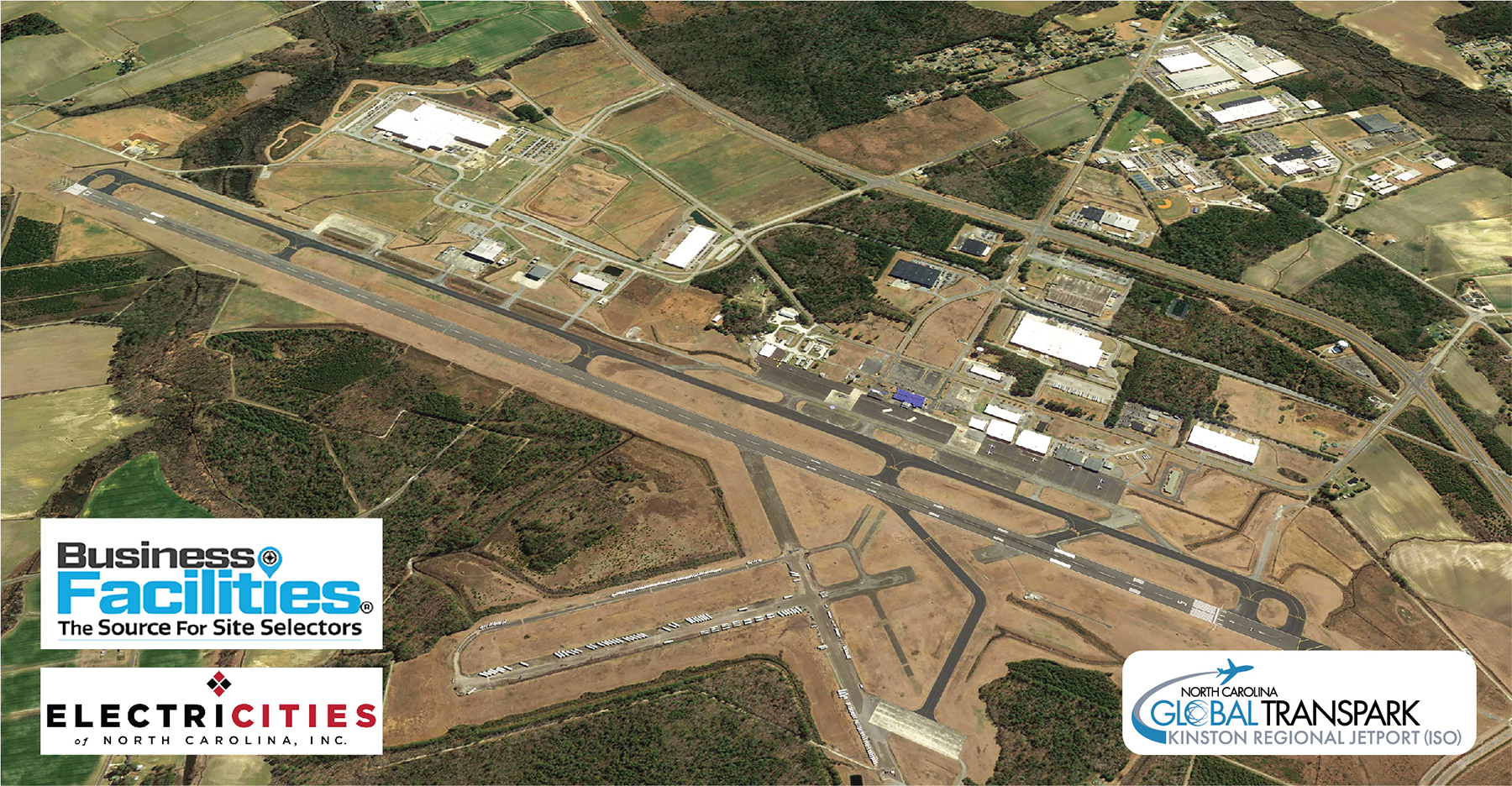Business Facilities Magazine And ElectriCities Team Up For Article On Aviation And Aerospace Assets In Eastern NC
Powering Aviation And Aerospace In North Carolina
When the Wright brothers made their first powered flight in 1903, odds are they didn’t realize they were igniting a legacy in North Carolina that would evolve into a booming aviation and aerospace industry.
North Carolina is now home to a network of aviation and aerospace industry assets, including some 450 suppliers — many in public power communities.
Take the Elizabeth City Aviation Research & Development Commerce Park (Airpark).
Located adjacent to the U.S. Coast Guard Air Station Elizabeth City and the Elizabeth City Regional Airport, the Elizabeth City Airpark is a 118-acre industrial park strategically positioned to support the aviation industry, especially maintenance, repair, and overhaul companies (MROs).
What’s more, the Airpark is an ElectriCities-certified Smart Site, ensuring developers that the site is shovel ready to go, with exhaustive due diligence completed.
Scott Hinton is Airport Director at the Elizabeth City Regional Airport and is Economic Development Director for Elizabeth City and Pasquotank County.
He said the Airpark’s ideal clients include “small to medium-sized businesses or startups that need runway access and are looking to get into an established area with people who have experience to join their company.”
And, since Elizabeth City’s Coast Guard base is the second largest in the world, “Businesses that complement or support the Coast Guard’s air operations are an ideal fit as well.”
Airpark businesses benefit from a steady pipeline of skilled professionals, thanks in part to the area’s schools and to the thousands of military personnel who call the area home.
Elizabeth City State University offers the state’s only four-year collegiate aviation program, and the College of The Albemarle boasts an FAA-approved Aviation Systems Technology program. Younger students can start shaping their careers at the Northeast Academy for Aerospace & Advanced Technologies.
Further inland is Kinston’s North Carolina Global TransPark (NCGTP), a 2,500-acre, multimodal industrial and business park that offers an unparalleled infrastructure for aerospace manufacturing, logistics, and research.
At the heart of the NCGTP is the Kinston Regional Jetport, home to one of the East Coast’s longest runways.
“This facility represents a significant investment by the state that’s already paying dividends, as evidenced by the growth of aviation tenants like flyExclusive and Spirit AeroSystems,” said Preston Hunter, Executive Director of the NCGTP.
The NCGTP partners with local community colleges, including Lenoir Community College’s Aerospace and Advanced Manufacturing Center, to offer on-site workforce development programs. LCC’s state-of-the-art Aviation Center for Excellence is set to open at the NCGTP in fall 2026.
Another aviation and aerospace asset in North Carolina is the state’s military presence. North Carolina has the fourth largest military footprint in the country, with over 138,000 military personnel at six major military bases and other locations.¹
Scott Dorney, Executive Director of the North Carolina Military Business Center (NCMBC), said, “Military aviation units significantly impact the state’s aerospace industry.”
The NCMBC connects North Carolina aerospace and other businesses with military procurement opportunities and helps them win.
“Hundreds of aerospace-related businesses in North Carolina manufacture jet engines, guidance and navigation systems, and components for manned and unmanned aerospace systems,” Dorney said. “Military and commercial MRO operations employ thousands of North Carolinians and keep Marine Corps, Air Force, and Coast Guard aircraft flying worldwide.”
With assets like the Elizabeth City Airpark and the NCGTP in Kinston, a reliable workforce pipeline, a strong military presence, and NCMBC support, it’s no wonder PwC ranks North Carolina the third most attractive state for aerospace manufacturing.
If the Wright brothers returned to North Carolina today, they’d be amazed at how far their first short flight in Kitty Hawk has taken us.
Link to the original article in Business Facilities Magazine and the ElectriCities newsletter:

